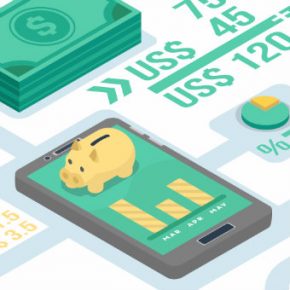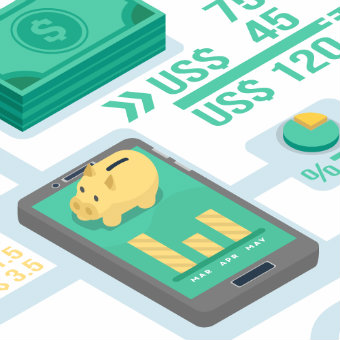German automotive industry at a crossroads
Category: Business
Dr nauk ekonomicznych, pracuje w NBP
more publications of the author Milena Kabza
(www.techinasia.com, CC BY)
“The glory days of banking have ended for good, but customers will still need services provided by banks,” said Cezary Stypułkowski, the CEO of mBank (owned by Commerzbank), at the Impact Fintech’17 conference in Katowice, Poland.
Bankers believe that the role of banks is changing. In light of the development of modern technologies, they are well aware that banks should be building customers’ trust towards new solutions, such as fintech’s services. Bank branches will continue to exist, but there will be fewer of them – which can be already noticed – and their operations will change. The majority of customer services and transaction activities will disappear, while consulting services will remain. Industry representatives are already seriously taking into consideration the utilization of robots in this field. Bank branches will also retain significance in terms of marketing.
In order to survive, banks will have to cooperate with technology start-ups, and in order to effectively compete they should become leaders in the creation of open interfaces for accessing bank accounts (Application Programming Interfaces – APIs). Thanks to APIs, banks will be able to cooperate with companies from outside the banking sector through the joint development of business processes and value chains. Banks would then function as platforms through which various enterprises would carry out requested operations for customers.
Because of the rapid development of mobile payments, even entities such as telecom companies have emerged as banks’ competitors. Their role in the contemporary financial services industry is growing rapidly because they not only have the appropriate infrastructure, but above all access to large amounts of data concerning the users of mobile phones. This includes data that allows them to determine consumer behavior, as a result of which the telecoms are able to offer financial or insurance services (e.g. knowing that we are using roaming they can offer travel insurance).
The telecoms also enable consumers to make payments without the necessity of setting up a bank account – some of them even acquired banking licenses (as did Orange Poland).
Banks CEOs believe that thanks to modern devices such as smartphones and smartwatches, financial institutions will soon be able to better determine the risk profile of their customers. The average consumer clicks on their smartphone about 2,600 times per day. This will provide access to sensitive data concerning health, such as stress level, rest time, and physical activity.
Thanks to Big Data and increasingly advanced algorithms, robots will be able to read human emotions. Companies operating on the financial market that will have access to such data will gain a big competitive advantage and will be able to offer more personalized products and services. Of course, there will also be a cost. Loss of privacy will be the immediate cost borne by customers. However, representatives of financial institutions stress that artificial intelligence can also be used to protect the interests of consumers.



